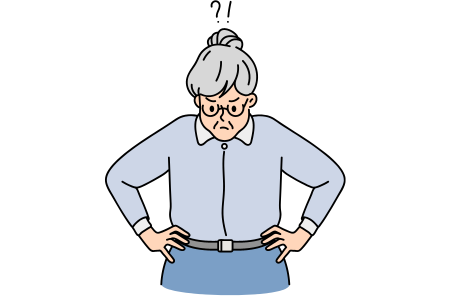News & Research on Psychology | ShareYrHeart
Depression often occurs in older adults due to a poor sense of smell.
Published
11 months agoon
By
ShareyrheartSummary: Depression often occurs in older adults due to a poor sense of smell. A study conducted over eight years on over 2,000 older adult. They were living in the community has found strong evidence connecting a weaker sense of smell with an increased risk of experiencing depression later in life.
Source: Johns Hopkins Medicine
The study, published in a medical journal on June 26. Shows that losing the ability to smell does not directly cause depression. However, it does suggest that being unable to smell might be a sign of poor overall health and well-being.

They have noticed many times that having a weak sense of smell can be an early sign of neurodegenerative diseases like Alzheimer’s disease and Parkinson’s disease. It can also make it more likely that you will die. “This research highlights the connection it has with feelings of sadness.” Explains Vidya Kamath, Ph.D., a professor in psychiatry and behavioral sciences at Johns Hopkins University School of Medicine. Also, this study looks at things that might affect how smelling things and feeling sad are related, such as problems with thinking and inflammation.
The research looked at information collected from 2,125 people. They took part in a government study called the Health, Aging, and Body Composition Study (Health ABC). This group of healthy older adults, aged 70–73 in 1997–98, participated in an eight-year study. The people in the study had no problems walking a short distance, climbing a few steps, or doing everyday tasks when the study began. They were evaluated in person once a year and over the phone every six months. The tests checked if people could smell certain things, if they were feeling sad, and how well they could move around.
The Research and Discoveries on Depression at older adults.
In 1999, when they first checked smell, 48% of people had a normal sense of smell, 28% had a weaker sense of smell known as hyposmia, and 24% had lost their sense of smell completely, known as anosmia. People who could smell things well were usually younger than people who had trouble smelling or couldn’t smell at all. During the follow-up period, 25% of the participants experienced significant signs of depression. When researchers studied this more, they found that people who couldn’t smell well or had lost their sense of smell were more likely to become depressed over time compared to those who had a normal sense of smell. People who could smell well were usually younger than those who had trouble smelling or couldn’t smell as well.
In the Study, researchers found three patterns of depressive symptoms among the group of people: consistently low, consistently medium, and consistently high levels of depression. Having a weaker sense of smell is linked to having a higher chance of experiencing moderate or high levels of depression. This means that the worse someone’s sense of smell is, the more likely they are to have depressive symptoms. These findings remained the same even after considering people’s age, income, lifestyle, and use of antidepressant medication.
Losing the ability to smell can affect our health and behavior in different ways. It can make it harder to tell if food or gas is bad or harmful. It can also make eating less enjoyable. Now we can understand that it may also indicate a significant weakness or problem in your health, according to Kamath. Smelling things is an important way for us to connect with the world around us. This study suggests that it could also be a signal that someone may develop depression later in life.
Humans have a sense of smell that is controlled by chemicals.
Humans have a sense of smell that is controlled by chemicals. It works using special cells called olfactory neurons in the nose. These special cells have a scent detector. It detects the tiny particles released by things in the environment and sends them to the brain for understanding. The more smell molecules there are, the stronger the smell. Combining different molecules leads to different smells.
Smells are handled by the brain’s olfactory bulb. This part of the brain works closely with other structures like the amygdala and hippocampus. These structures help with remembering things, making decisions, and feeling emotions.
The researchers from Johns Hopkins University found evidence that suggests there may be a connection between the sense of smell and depression. This connection could be due to biological factors such as changes in serotonin levels and brain volume, as well as behavioral factors like reduced social function and appetite.
Conclusion
The researchers want to do the same study again with more groups of older adults. They also want to see if the part of the brain called the olfactory bulb is different in people with depression. They also want to see if using smell can help prevent late-life depression.
Other scientists who helped with this research are Kening Jiang, Danielle Powell, Frank Lin, and Jennifer Deal from the Johns Hopkins University School of Medicine and Bloomberg School of Public Health. Kevin Manning from the University of Connecticut also contributed.
According to the policies of the Johns Hopkins University School of Medicine, the authors did not have any conflicts of interest related to this research. This research was funded by the National Institute on Aging, the National Institute of Nursing Research, and the Intramural Research Program of the National Institutes of Health: National Institute on Aging.
Source : Johns Hopkins Medicine
Image Source : Canva



